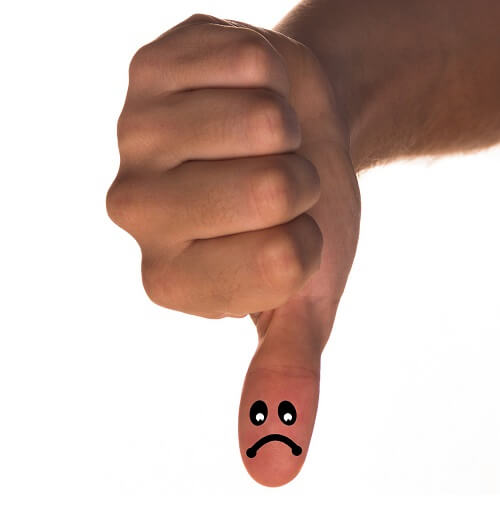Thank you to Stacy Flury for today’s post. Stacy is a mom who writes from personal experience. There’s no better qualification than that. Her message is to parents of adolescents, but it applies to adult children, as well.
A common thread that unites many parents whose children are affected with mental illness is the unwillingness or refusal to take medication.
refusal to take medication.
It is frustrating, scary and overwhelming. How can you help your teen when all they do is battle you? You beg, plead, bribe, or threaten in every way for them to take their medicine. None of it works.
So what works? There’s only one place to get that answer – from them.
You may think the only response you’re going to get is, “No!” After all, that’s a common word you have been confronted with daily. Just because they give a negative answer doesn’t mean they want to live a life of mental confusion. They truly want what most teens have – normalcy – to be free of illness.
The biggest drawback for the mentally challenged are the side effects from their medications. Teens and adults often express feelings of lethargy, not being themselves, feeling worse than before, and embarrassed that they have to take medication in the first place.
The other complication is that mental illness is tiring in itself. It drains them emotionally, mentally, and physically because the brain is trying harder to undo the symptoms of mental illness. They’re constantly at war with racing thoughts that leave them exhausted, depressed, acting out, and more.
In their eyes, the future is bleak. They turn to drugs and alcohol to numb what they’re going through.
The last thing we need is for them to end up with an addiction on top of their mental illness. So, how can we to win this fight?
Years ago, the psychiatric field often gave out a one size fits all medication. Much has changed since then. Today, doctors have learned a lot through trials and research.
Here are some lessons they’ve learned that might help you and your child:
 Each medication works differently for each individual. What works for one may not work for another. It takes time to see any difference. Keeping a journal of what helps and what doesn’t is productive in figuring out the right type of meds they can tolerate and do well on.
Each medication works differently for each individual. What works for one may not work for another. It takes time to see any difference. Keeping a journal of what helps and what doesn’t is productive in figuring out the right type of meds they can tolerate and do well on.
Some homeopathic treatments can help, along with therapy. But this needs to be discussed with their doctors.
Staying away from certain foods that aggravate mental illness. Healthy choices have always shown great results. Ask your mental health advocate for a referral to a nutritionist.
Medicine needs to be determined by the person’s weight and built up gradually from a small dosage to a higher one IF and when needed. Communication is the key. They need to work closely with their doctor to monitor changes along the way.
Doctors are more open to collaborate with their patients regarding what they’re comfortable taking and willing to continue taking.
As a teen’s body matures, a medication change is often necessary.
The stigma of being on medication is lessening due to increased numbers of people of all ages who are taking them. It’s not a death sentence. It can bring normalcy to one’s life.
Doctors and patients of any age need to develop good rapport with each other in order for the patient to be compliant with their treatment plan. If your child doesn’t like their doctor, it might be time to look for a new one.
treatment plan. If your child doesn’t like their doctor, it might be time to look for a new one.
The more they’re involved in the decision-making, the more apt they are to cooperate.
Finally, the best medicine I’ve found is prayer mixed with the wisdom of medical professionals. Praying for God to give your child the desire to get well is always a benefit.
We may not have control over what they do or how they respond, but God does. He knows their fears, worries, capabilities, and their heart. Your job as a parent is to support your child in their journey and encourage them to not give up as they seek the best solution for a healthy mental attitude toward healing.
 These Bible verses are helpful for them and for us:
These Bible verses are helpful for them and for us:
When anxiety was great within me, your consolation brought me joy. Psalm 94:19
Do not be anxious about anything, but in every situation, by prayer and petition, with thanksgiving, present your requests to God. And the peace of God, which transcends all understanding, will guard your hearts and your minds in Christ Jesus. (Philippians 4:6-7)
Bible Quotes taken from NIV Copyright 2011
What have you done that helped? Please share any insights you have for others.
You can follow Stacy at anchorofpromise


Thank you,because I have always struggled with mental.illness,and of course it affected my child,things that other kids were able to have or do,he did not get to.even though I tried hard sometimes,I made bad,horrible decisions.:( I know that has a lot to do with his addictions,today,I pray for him to come back to Jesus,and just be loved,and love his kids and family unity.I had a new med added,and am going through a very hard relapse with all my mental issues,so I understand.thank you for this arcticle,it was a good one.
Guen, thank you for your comment. We’re so sorry for the struggles you’ve experienced both in your life and now with your son. Please don’t be too hard on yourself. His choices are still his choices. Any part you may have played be assured that God is a merciful heavenly Father who is slow to anger, abounding in love and forgiveness. Sometimes forgiving ourselves is the hardest for us. I pray you’ve forgiven yourself. I also pray that your son will come back to his faith in Jesus, and as you said, be loved as well as give love to his family. May the Lord help you through this hard time as you keep on keeping on. I’m so glad the article helped.
God bless you, Dena